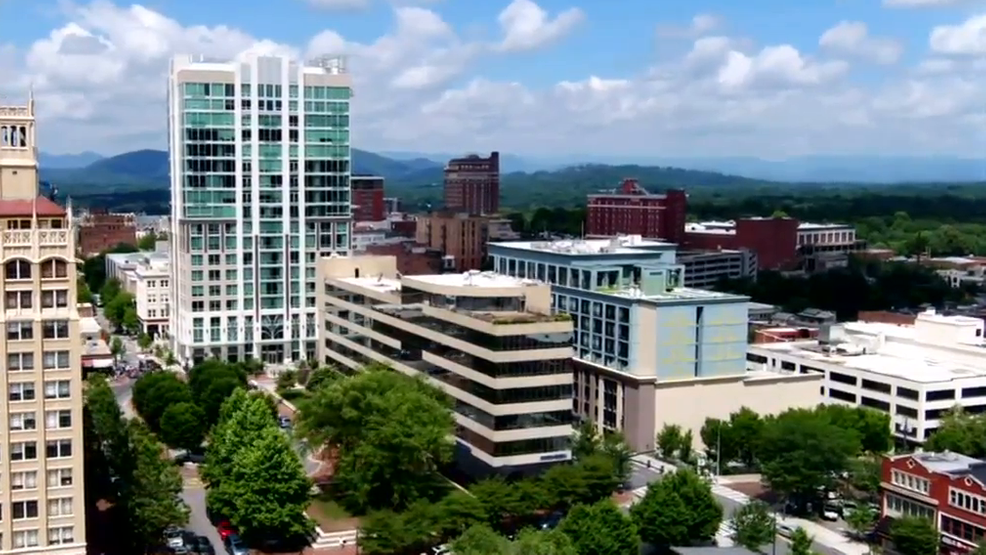
ASHEVILLE, N.C. (WLOS) — Asheville’s 25-member Community Reparations Commission that’s been meeting more than two years is recommending city and county leaders launch a guaranteed direct cash payment program to help support individuals with extreme low income levels.
The amount has yet to be determined. The payments would have no restrictions on how the money could be spent.
The proposal stops short of other programs nationally, like in Evanston, Illinois, where cash reparations are specifically given to African Americans for past harms in the U.S. Evanston made history by giving qualifying Black residents $25,000 housing vouchers or $25,000 cash. The city continues to use tax revenues from recreational cannabis sales to fund the program.
REPARATIONS COMMISSION SUGGESTS ECONOMIC PROJECTS FOR ASHEVILLE’S BLACK COMMUNITY
Asheville and Buncombe County have more than $4 million in reparations fund reserves, mostly from taxpayer dollars approved in $500,000 installments by City Council and Buncombe Commissioners over the past several years. Those funds would be used in part for the program.
Current paperwork for the Guaranteed Income Pilot states it would provide “monthly, cash payment directly to individuals,” but the program proposal falls short of stating it would be solely for Black Asheville residents.
Because of that, Asheville and Buncombe County leaders wouldn’t be breaking any national ground by approving the program but would be choosing a more conservative approach that comes with a lower risk for litigation. The program would create a larger umbrella without race specifications.
Reparations Commission Chair Dr. Dwight Mullen Chair said other cities are seeing positive outcomes with cash payment programs that, in effect, can help Black families in Asheville.
“What is the way of closing disparities by race in this area,” Mullen said. “In education, housing, healthcare, and criminal justice, and economics, what do we know for a fact works? The specificity of the grants is one of the things that makes our cash payments really different.”
COMMUNITY REPARATIONS COMMISSION GETS UPDATE ON ‘CEASE THE HARM’ AUDIT
Mullen emphasized the payments would be unrestricted. In its most basic form, Mullen said the program with monthly payments would help low-income families pay bills.
He said the commission remains focused on key socio-economic areas of healthcare, housing, economic mobility, education and criminal justice.
“I really don’t know the amount, but it will be enough to affect the overall poverty level that individual families are experiencing,” Mullen said.
He said the hope would be the cash payments would help improve families’ outcomes in the key areas cited.
Before the pandemic, Mullen said Black families in Asheville were living with median incomes just slightly above the poverty line.
“After the pandemic, it dropped nearly $10,000,” he said.
Evanston reparations program
Robin Rue Simmons led Evanston’s historic and groundbreaking reparations program and spoke with News 13 about it.
“It is exclusively focused on the Black community,” said Simmons, the founder and executive cirector of First Repair, a not-for-profit that educates and advocates for local reparations, nationally. “This $25,000 is reparations. It is targeted redress to the Black community for the harm the city of Evansville acknowledges through anti-Black housing practices and zoning laws that were enforced through 1919 and 1969.”
Simmons, who was the 5th Ward Alderman for Evanston, led the push for reparations and in collaboration with leaders accomplished the first government-funded reparations legislation in the U.S.. She currently continues to advocate including for a Federal Reparations Law. She emphasizes that other programs that create community centers or urban professional development concepts are not what she considers as pure reparations for Black Americans.
“This is not an equity program. This is for Black Evanstonians,” Simmons said. “Our eligibility includes Black Evanstonians who lived in Evanston during that period of harm. It’s a narrowly tailored legal framework for reparations. So, if you were Black and lived in Evanston between 1919 and 1969 or you were a direct descendant, then you are eligible.”
Durham pilot cash program
Durham has not implemented a reparations program, but the city has done a pilot cash program focused on helping individuals getting released from prison in the interest of providing seed funds to start their life over in a positive way. The program was spearheaded by Mark-Anthony Middleton, the current Vice Mayor.
“We focused on a group of individuals that were justice involved,” Middleton said meaning the individuals were serving prison time. “We used funds from the former CEO of Twitter supplemented by philanthropic funds we raised here in Durham to make cash payments over an 18-month period. Of that group, we had zero recidivism.” Zero recidivism means the group who received payments did not re-offend. Middleton said he feels the data has been enlightening and hopeful. “We continue to study it.”
Middleton said about 130 individuals were given $600 monthly to help them restart their lives with a base of some money coming in each month. The non-profit executing the plan is called Step-Up Durham.
Middleton said the plan is to set aside $1 million in the city’s budget to keep the program running in the form of guaranteed income.
“Lo and behold, guess what they did with the money? They paid bills. They bought clothes, they bought groceries,” Middleton said.
The program doesn’t have a race specification as leaders continue to be sensitive to concerns around lawsuits that can challenge race-based reparations programs.
Middleton and others involved in cash payment programs that focus on helping Black families push back on assertions the programs are unfair. He points to the country’s history of programs for other groups when asked if cash payments could be considered a form of socialism.
“There were payments made to Japanese-Americans who were interred during World War II,” said Middleton. “There were payments made to slave owners after slavery for lost property. When we talk about bailing out the automotive industry, or airlines, if we have banks that are too big to fail and participate in the market and make bad decisions, it was taxpayer dollars that bailed them out. Is that socialism?”

